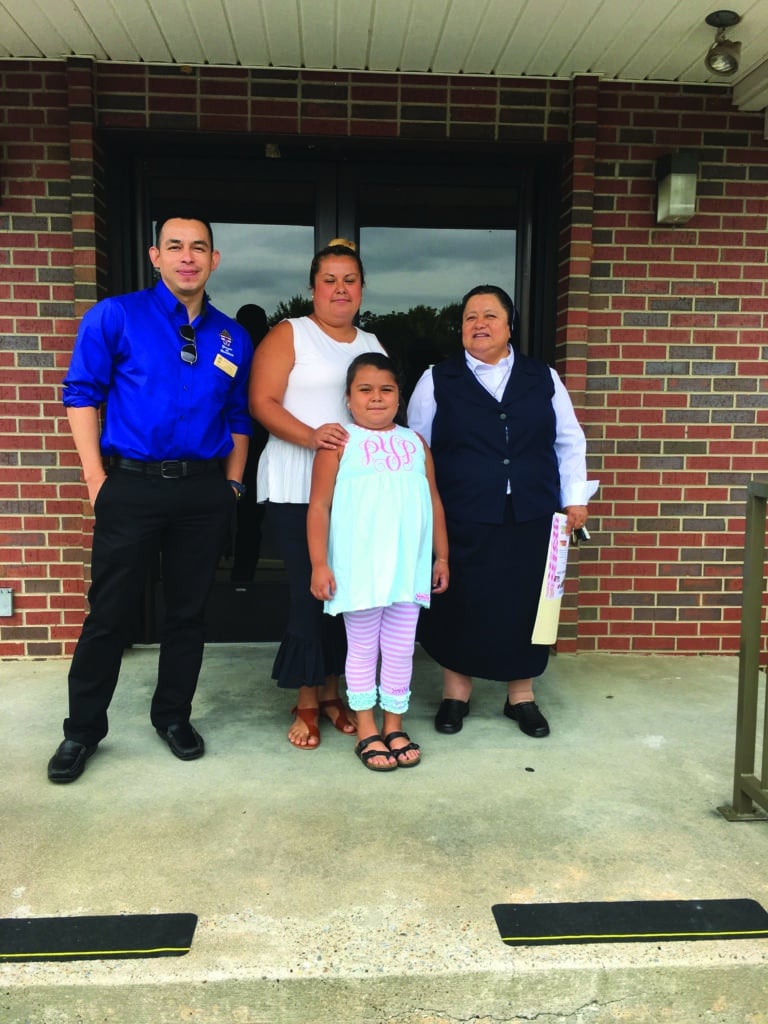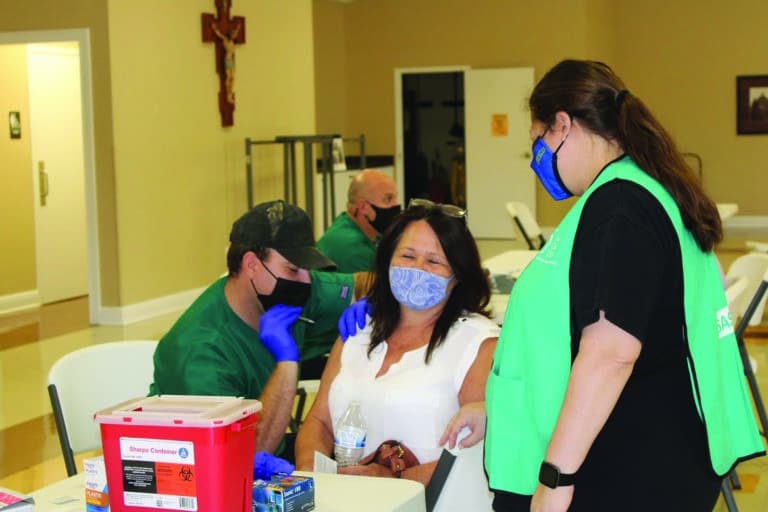SEE
The Hispanic/Latino community in the Diocese of Owensboro finds themselves in different situations regarding immigration, integration into communities, and economic levels.
Some individuals and families have settled here, and their children or grandchildren have been born in the United States. They are stable in their jobs, schools and parishes. They could serve as bridges and navigators in the community. Some individuals and families do not stay in one place; they follow job opportunities or seek to be close to their family members and only stay in the diocese for a short time. Some individuals and families are migrants and come for a season depending on the weather and farm work. Some individuals and families are newcomers and need a lot of support to meet their basic needs, find community resources, look for work, and enroll their children in school.

There are many Hispanics/Latinos in the diocese who are U.S. citizens and permanent residents. But there is also a significant population of people with temporary legal status — awaiting asylum, TPS (Temporary Protected Status), DACA (Deferred Action for Childhood Arrivals), etc. — or who are undocumented and need support and legal advice on immigration matters. It is important to understand that this permanent limbo or the absence of a path toward legalization for the undocumented affects their level of participation in Church life. Many times, individuals and families live in constant uncertainty and fear, not necessarily feeling like they belong or that they are welcome.
Family life faces many challenges and obstacles in our times. Many Hispanic/Latino parents do not feel prepared to deal with them. Sometimes language and culture complicate the relationship between parents and their children. Technology is a particularly difficult challenge because many parents do not know how to protect their children from all the dangers that it entails. Especially for newly arrived Hispanics/Latinos and the undocumented there is a lot of financial need. This need sometimes causes parents to work so many hours that they do not spend time together as a family. Some children spend a lot of time alone and are neglected. Some couples, families and young people are in crisis and do not know about the resources that exist to help them.
JUDGE
“The V National Encuentro delegates also advocated for the Church to make a clear and prophetic commitment to promote human development in the Hispanic/Latino community. The burning issue is immigration: the Church must become the prophetic voice of immigrants…Advocacy must be accompanied by direct assistance, or at least referral to agencies that can help, for undocumented individuals and families…Education is the key to social advancement…begins with literacy, finances, career skills, language, citizenship, GED, and skills for healthy relationships.” (P&C, p. 61)
“Respond to particular needs in the community such as recovery from addictions, communication in marriage and family life, and visiting the sick or homebound; welcome and help the recently-arrived to find work, education and faith formation…” (P&C, p. 74)
“An evangelizing community gets involved by word and deed in people’s daily lives; it bridges distances, it is willing to abase itself if necessary, and it embraces human life, touching the suffering flesh of Christ in others. Evangelizers thus take on the ‘smell of the sheep’ and the sheep are willing to hear their voice.” (EG 24)
“I prefer a Church which is bruised, hurting and dirty because it has been out on the streets, rather than a Church which is unhealthy from being confined and from clinging to its own security.” (EG 49)
“Each individual Christian and every community is called to be an instrument of God for the liberation and promotion of the poor, and for enabling them to be fully a part of society. This demands that we be docile and attentive to the cry of the poor and to come to their aid.” (EG 187)

ACT
Parish leadership is encouraged to consider its current works of charity and justice, and those are still needed. See Appendix C for references from the documents to study the topic further and questions for local discernment.
Diocesan-level projects:
Support couples and families in their mental health. (Collaboration between the offices of Hispanic/Latino Ministry, Catholic Charities, Communications, Youth & Young Adult Ministry and Marriage & Family Life)
- Expand the options to receive accessible counseling in Spanish. (2021-22) • Offer workshops for parish leaders and parents on the current challenges for families and young people, healthy family relationships, child development, effective discipline, signs of abuse, etc.
- Offer mental health training and available resources to priests, parish staff, and other leaders.
- Expand the Clean Heart Initiative in Spanish. (2021-22)
- Create a list of recovery groups / 12-step groups for Spanish speakers. (2021-22)
- Teach parents about using technology and how to protect their children.
- Train teams by region on how to use and share the diocesan and community
resources available.
Support Hispanics/Latinos with their practical needs. (Collaboration between the Offices of Hispanic/Latino Ministry, Catholic Charities and Communications)
- Continue to provide legal services for immigration. (Ongoing)
- Give presentations (in person and via video) and create resource packets on immigration, proposed legislation, and DACA. (2021-22)
- Create better systems to help Hispanics/Latinos in need.
- Train local people in each region in how to navigate community services to help those who do not know.
- Spread the word about the directory of available services and distribute copies in Spanish. (2021-22)
- Give presentations (in person and via video) on financial literacy.
- Connect Hispanic/Latino leaders with local St. Vincent de Paul chapters.



